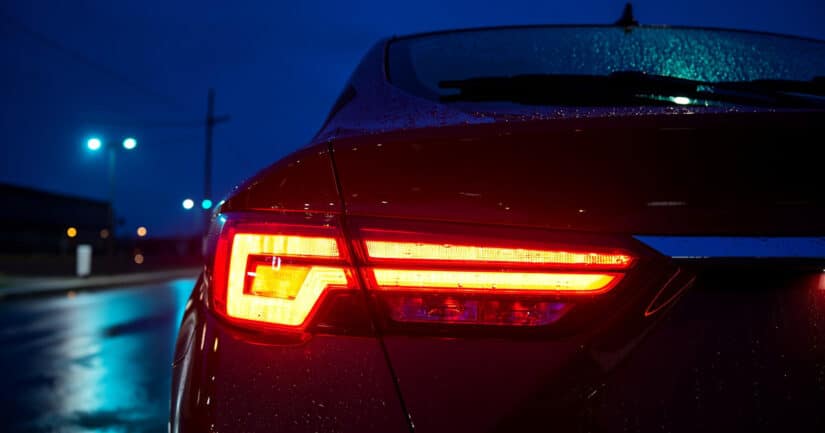
In South Carolina, car accidents caused by brake-checking when a driver suddenly slams on the brakes to intimidate or retaliate against another vehicle have become increasingly common. While some see it as a moment of road rage, tort law treats brake-checking as a reckless or intentional act that endangers others and can cause serious bodily injury, property damage, and even catastrophic injuries. Victims of these auto accident cases may face thousands in medical bills, vehicle damage claims, and lost wages. Understanding how South Carolina’s personal injury law handles these collisions is essential for protecting your rights especially with guidance from experienced car accident lawyers who help victims pursue compensation for reckless driving incidents.
Is Brake-Checking Illegal in South Carolina?
Yes. Under South Carolina traffic law, brake-checking violates multiple statutes related to reckless driving and following too closely. Drivers who intentionally brake to “teach someone a lesson” can be held civilly and criminally liable.
From a tort law perspective, brake-checking can qualify as negligence, gross negligence, or even intentional misconduct, opening the door for punitive damages under South Carolina’s Tort Claims Act. If an accident results, the brake-checking driver can be held liable for medical expenses, property damage, and pain and suffering under a personal injury claim.
Common Injuries from Brake-Checking Accidents
When one driver slams on the brakes unexpectedly, rear-end collisions are almost inevitable. Victims of these auto accidents in South Carolina often suffer:
- Bodily injury such as whiplash, fractures, or head trauma
- Spinal and soft-tissue injuries
- Collision injuries from seatbelts or airbags
- Chemical injury or burns in severe crashes
- Emotional trauma or long-term anxiety behind the wheel
These incidents often require extensive treatment, generating high medical bills, ongoing medical expenses, and long-term rehabilitation costs that must be included in your verified claim for damages.
Who Is at Fault for a Brake-Checking Car Accident?
Determining fault depends on the evidence. While the rear driver usually appears responsible in most auto accident cases, South Carolina courts recognize exceptions when brake-checking is proven. Dash-cam footage, eyewitness statements, and police reports are vital.
Under South Carolina tort law, the brake-checking driver may be found primarily or jointly liable if:
- They intentionally braked without justification.
- They engaged in aggressive or retaliatory driving.
- The accident reconstructionists confirmed no legitimate reason for braking.
Victims can file personal injury claims against the at-fault driver, their insurance companies, or pursue compensation from their own auto insurance under Uninsured Motorist Coverage if the offender fled the scene.
The Role of Insurance Companies After a Brake-Checking Accident
After a car accident, insurance companies and insurance adjusters often dispute who is responsible. Some carriers try to deny or reduce payouts, arguing that both drivers share blame. That’s why it’s crucial to work with skilled injury lawyers who can handle communications, gather evidence, and prove liability.
Under South Carolina’s policy of insurance regulations, your insurance coverage may include:
- Collision coverage for physical damage
- Medical payments coverage for medical bills
- Liability for property damage to other vehicles
- Uninsured or underinsured motorist coverage for hit-and-run cases
If fault is contested, the claim process may progress into civil litigation, where district courts or appellate courts determine compensation through a Settlement Fund or Settlement Agreement.
Filing a Personal Injury Claim After Brake-Checking
If you were hurt because of brake-checking in South Carolina, filing a personal injury claim allows you to pursue compensation for:
- Medical expenses and rehabilitation
- Property damage and vehicle damage claims
- Pain and suffering
- Lost wages and reduced earning capacity
Most victims begin by filing a claim for payment with their insurance companies, but if negotiations fail, they may proceed with a personal injury lawsuit in United States District Court or local district courts.
The statute of limitations in South Carolina gives victims three years to file, but exceptions may apply under the Federal Tort Claims Act or Insurance Reserve Fund if government vehicles were involved.
Gathering Evidence for a Strong Claim
Building a strong injury claim requires comprehensive documentation. Important steps include:
- Taking photos of the accident scene and vehicle damage claims.
- Obtaining witness statements.
- Keeping all medical records, repair bills, and insurance claims correspondence.
- Reporting the crash to law enforcement and your insurer promptly.
Your personal injury attorneys can use this evidence to negotiate with insurance carriers or pursue civil litigation when needed.
Compensation You Can Recover
Victims of brake-checking car accidents may be entitled to multiple forms of compensation under South Carolina personal injury law, including:
- Medical Bills and future medical expenses
- Property damage laws recovery for vehicles and personal items
- Pain and suffering
- Punitive damages for intentional or reckless acts
- Loss of consortium or quality of life
If multiple victims were injured, class action lawsuits or mass torts may arise especially in large-scale crashes or commercial Truck Accidents.
Why You Need Experienced Injury Lawyers
Handling personal injury claims after a brake-checking auto accident can be complex. Insurance companies may deny fault, lowball settlements, or delay payments.
Experienced injury lawyers in South Carolina understand how to deal with insurance adjusters, evaluate insurance coverage, and present compelling cases in district courts. They ensure your verified claim for damages is accurate, timely, and supported by strong evidence.
Legal professionals also track statute of limitations deadlines and pursue full recovery for pain and suffering, bodily injury, and property damage under state and Federal statute protections.
Preventing Brake-Checking Accidents
While you can’t control another driver’s behavior, defensive driving helps minimize risks:
- Maintain a safe following distance.
- Avoid retaliating against aggressive drivers.
- Report dangerous behavior to law enforcement.
- Keep dash-cam footage for future Insurance Claims.
Remember retaliation on the road can escalate into tragic auto accidents and costly civil litigation.
About Ted Law
At Ted Law Firm, we serve families across Aiken, Anderson, Charleston, Columbia, Greenville, Myrtle Beach, North Augusta, and Orangeburg proudly represents accident victims across South Carolina, offering trusted legal guidance in car accidents, Truck Accidents, Motorcycle Accidents, medical malpractice, defective products, and civil litigation. Contact us today for a free consultation.
